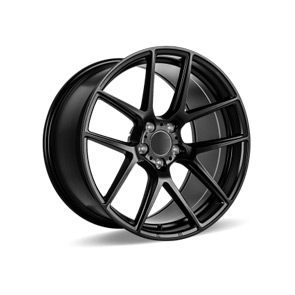hydraulic clutch line
Understanding Hydraulic Clutch Lines An Essential Component in Automotive Systems
The hydraulic clutch line is a crucial component in modern automotive systems, particularly in vehicles equipped with manual transmissions. This article aims to delve into the functions, importance, and maintenance of hydraulic clutch lines, providing a comprehensive understanding for enthusiasts and everyday drivers alike.
What is a Hydraulic Clutch Line?
A hydraulic clutch line is a specialized conduit that connects the clutch master cylinder to the clutch slave cylinder in a vehicle’s transmission system. The primary purpose of this line is to transport hydraulic fluid, facilitating the operation of the clutch. When the driver presses the clutch pedal, the master cylinder generates hydraulic pressure, which travels through the hydraulic line to the slave cylinder and disengages the clutch. This process is essential for smooth gear shifting and overall vehicle operation.
Importance of Hydraulic Clutch Lines
Hydraulic clutch lines are vital for several reasons. Firstly, they provide a reliable and efficient mechanism for engaging and disengaging the clutch. Unlike mechanical systems, which rely on cables and rods, hydraulic systems offer smoother and more precise control. This enhances the driving experience by allowing for quicker and more accurate gear shifts.
Secondly, hydraulic systems are less susceptible to wear and tear compared to their mechanical counterparts. There are fewer moving parts involved, which reduces the chances of failure. However, this doesn’t mean they are maintenance-free. Like all vehicle components, hydraulic clutch lines can develop issues over time.
Common Issues with Hydraulic Clutch Lines
One major concern associated with hydraulic clutch lines is leakage. If a hydraulic line develops a leak, it can lead to a significant loss of hydraulic fluid, resulting in reduced pressure in the clutch system. This can cause difficulties in disengaging the clutch, making gear shifts challenging or even impossible. Drivers may notice symptoms such as a spongy or soft clutch pedal or, in more severe cases, the inability to shift gears at all.
Another issue can arise from air entering the hydraulic system, often due to a leak or a failure to properly bleed the system after maintenance. The introduction of air can lead to a phenomenon known as “air in the lines,” resulting in a soft pedal feel and an inability to fully engage the clutch. Regular maintenance checks are essential to prevent these issues.
hydraulic clutch line

Maintenance of Hydraulic Clutch Lines
To ensure the longevity and reliability of hydraulic clutch lines, regular maintenance is crucial. Here are some essential tips
1. Inspect for Leaks Regularly check the hydraulic lines for any signs of fluid leakage. Pay close attention to connections and fittings, as these are common points of failure.
2. Fluid Levels Keep an eye on the hydraulic fluid levels in the master cylinder reservoir. Low fluid levels may indicate a leak.
3. Flush and Replace Fluid Over time, hydraulic fluid can become contaminated or lose effectiveness. It’s recommended to flush and replace the fluid every couple of years or as specified by the manufacturer.
4. Bleeding the System If you notice a change in pedal feel, it might be necessary to bleed the hydraulic system to eliminate air. This can often be done at home with the right tools and a bit of guidance.
5. Professional Inspection If you experience persistent issues or are unsure about the condition of your hydraulic clutch line, it’s advisable to consult a professional mechanic. They can conduct thorough diagnostics and make necessary repairs.
Conclusion
Hydraulic clutch lines play an essential role in the functionality of modern manual transmission vehicles. Understanding their purpose, identifying common issues, and practicing regular maintenance can significantly enhance your driving experience and extend the lifespan of your vehicle’s clutch system. Whether you're a car enthusiast or a casual driver, staying informed about your vehicle’s components is key to ensuring its optimal performance.
-
Workings of Clutch Pipe and Hose SystemsNewsJun.04,2025
-
The Inner Workings of Hand Brake Cable SystemsNewsJun.04,2025
-
The Secrets of Throttle and Accelerator CablesNewsJun.04,2025
-
The Hidden Lifeline of Your Transmission Gear Shift CablesNewsJun.04,2025
-
Demystifying Gear Cables and Shift LinkagesNewsJun.04,2025
-
Decoding Clutch Line Systems A Comprehensive GuideNewsJun.04,2025
